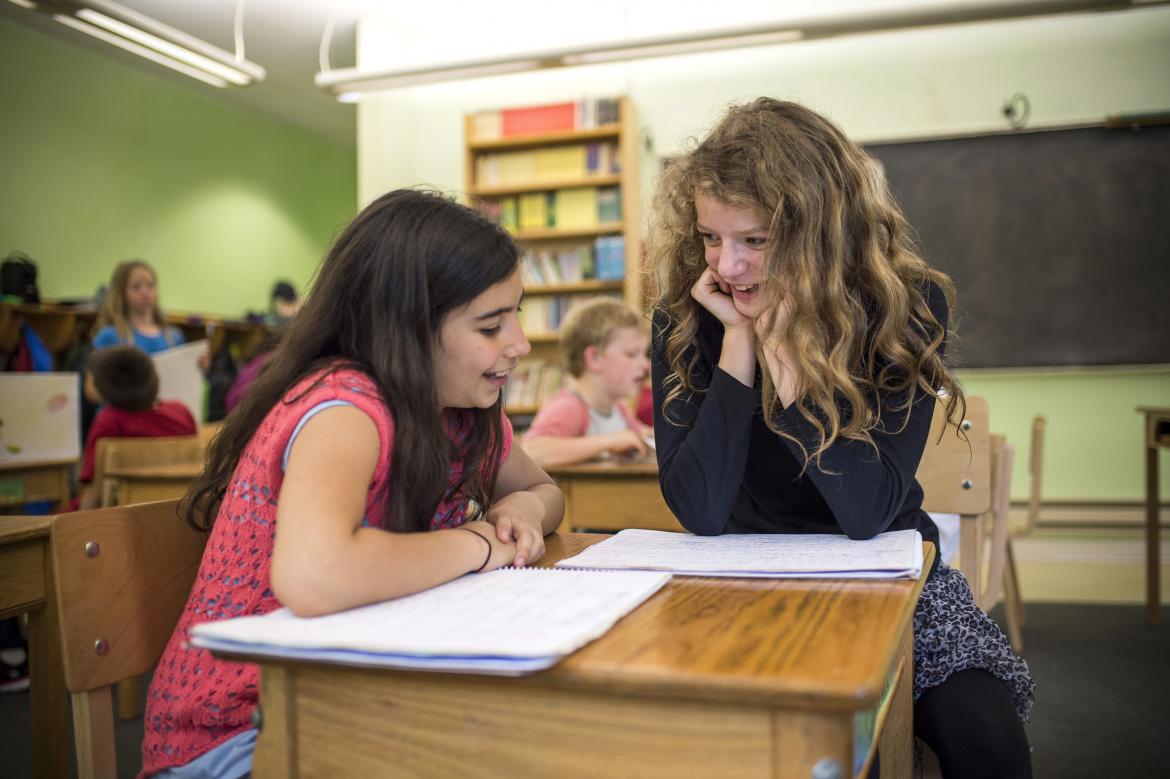Academics

Waldorf’s unique curriculum nurtures each student’s intellectual, social, physical, and emotional needs by introducing concepts and techniques at the developmental moments when children can best assimilate them. Our finely tuned educational program has been proven to build a solid foundation for future academic success. Our graduates are marked by distinctive self-possession and an inner focus in every area of life and work.
At Waldorf, students learn to recognize that knowledge is a tool for enhancing their lives and contributing to their communities. Practical, real-world contexts give relevance to lessons across the curriculum, and students’ natural curiosity sparks the use of what they have learned for discovery and problem solving.
Great literature, music, visual art, and movement, integrated through the curriculum, foster deep aesthetic appreciation and cultural awareness.
Early Childhood
Our Children’s Garden, which offers programs serving children and families from infancy through kindergarten, is a child-centered environment in which qualified Waldorf teachers nurture each child’s natural curiosity, enthusiasm, and innate ability to learn. The consistent rhythmic structure of the day is geared to the developmental needs of young children. Each day includes free play, outdoor exploration, and teacher-lead activities such as story-telling, circle, gardening, painting, woodworking, and eurythmy. Every experience helps form the initial building blocks for long-term academic success and the foundation for a satisfying life.
Classic children’s literature, told orally or accompanied by puppetry, feeds children’s imagination, builds vocabulary, and supports the development of language and literacy. Talented teachers plant the seeds of empathy through the care and nurturing they give each child, serving as role models for the development of loving hearts. Daily activities, such as preparing meals and caring for the classroom, allow children to explore elementary concepts of math, build social skills, and practice real-world problem-solving.
Lower School
As students progress through Waldorf’s developmentally based curriculum, the same class and teacher work together from year to year. The close, supportive bond that develops allows teachers to truly understand every child’s strengths, challenges, and academic growth. The dynamic and engaging social structure of a Waldorf classroom is inclusive, and welcoming to new students. An interdisciplinary and experiential approach to learning cultivates imagination while laying a strong foundation of skills in reading, math and writing.
Interdisciplinary thinking is nurtured throughout the curriculum—from the mathematics of botany to illustrating historical figures and bringing great literature to life through performances. Character is shaped through everyday activities that encourage the exercise of compassion for the living world. Music and stories broaden children’s worldview and help them discover their role within a diverse community. Learning to read is a hands-on experience. Children learn to recognize and write letters and words by drawing and sculpting them. Physical engagement, essential to the learning process, is woven into every area of the curriculum.
Middle School
At the moment when students’ ability to express ideas conceptually grows, so do academic and social expectations. Our oldest students take on a leadership role within the academic school. They engage in more challenging research and independent work in math, geography, physics, chemistry, and anatomy. Teachers guide them in exploring new perceptions about the world through readings and discussions of issues of law, societal conflicts, environmental sustainability, and the evolution of civilization.
Taking ownership of one’s education takes many forms in grades 6 - 8. Students create textbooks in which they share their research and deepen their connection to the rich material they’re learning. Social responsibility is a core value at Waldorf. It begins with a spirit of inclusion and acceptance and ripples out from our campus as students become actively engaged with the environment and community. Hands-on learning deepens students’ understanding. Handwork projects, integrated with the study of history, give students direct insight into how technology changed society in the industrial revolution.
Waldorf School of Baltimore offers finely tuned educational programs in many areas in Maryland, including Baltimore, Towson, Columbia, Glen Burnie, and Westminster.
